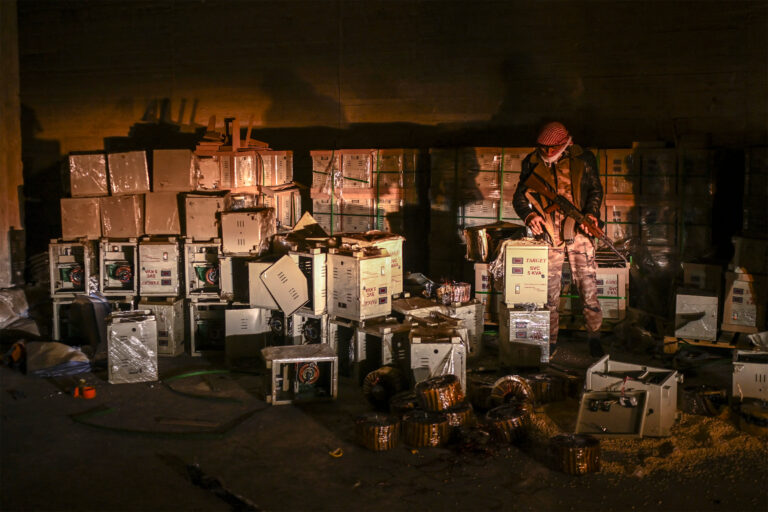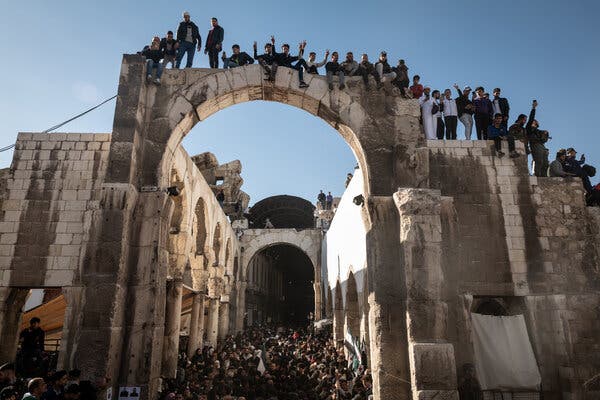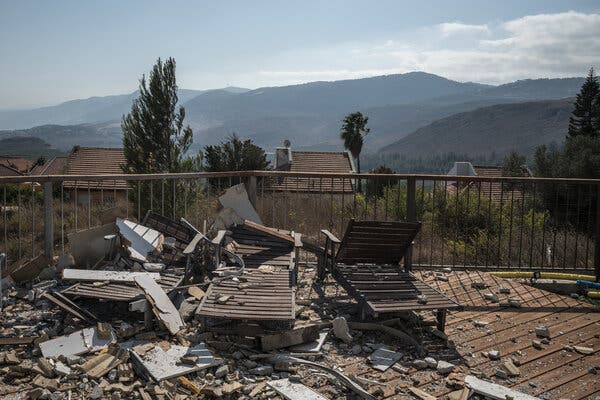Ayatollah Ali Khamenei led Friday Prayer for the first time in years, delivering a sermon during a memorial service in Tehran for Hezbollah’s leader.

Iran’s supreme leader, Ayatollah Ali Khamenei, led Friday Prayer for the first time in years, delivering a sermon during a memorial service in Tehran for Hezbollah’s leader that railed against Israel and warned of further retaliation for its attacks on Iran’s proxy forces.
The leader of Hezbollah, Hassan Nasrallah, was one of Ayatollah Khamenei’s closest allies and friends. He was killed in an Israeli attack last week. Many people had waited for hours inside the venue ahead of Ayatollah Khamenei’s address, carrying Palestinian flags along with the yellow flags of Hezbollah and posters of Mr. Nasrallah.
Ayatollah Khamenei switched to speaking in Arabic to address Palestinians and the people of Lebanon, which has been battered by Israeli strikes targeting Hezbollah, and said that Iran shared an enemy with them, referring to Israel. He also defended Tuesday’s Iranian missile attack against Israel as “completely legal and legitimate.”
“What our armed forces did was the least punishment they could do” against Israel, he said, adding that “what is logical and rational will be done at the right time and will be done again in the future if necessary.”
On Tuesday, Iran fired nearly 200 missiles at Israel in retaliation for Mr. Nasrallah’s death, as well as for the recent killings of Hamas’s political leader, Ismail Haniyeh, and an Iranian commander, Iran’s Islamic Revolutionary Guards Corps said.
In a series of attacks, Israel has been diminishing the military abilities of and dismantling the leadership of Hezbollah, a militia group backed by Iran and based in Lebanon. On Thursday night around midnight, Israel launched an intense barrage of airstrikes in a neighborhood south of Beirut in an effort to target Hashem Safieddine, Mr. Nasrallah’s presumed successor, according to three Israeli officials.
It is rare for Ayatollah Khamenei to lead Friday Prayer and deliver the sermon, typically doing so under extraordinary circumstances related to Iran’s national security. The last time was in 2020 after the United States killed Iran’s top general, Maj. Gen. Qassim Suleimani, in Iraq. Iran retaliated by firing ballistic missiles at an American base in Iraq.
Ayatollah Khamenei’s appearance in person, despite security concerns, signaled the significance of the moment as anxiety mounts that Israel and Iran appear prepared to risk direct conflict.
Large crowds of men and women waited in lines on Friday that began forming outside the compound as early as 6 a.m., several hours before the event started, videos published by Iranian news media showed.
Ayatollah Khamenei said earlier in the week in televised comments that he was in mourning for Mr. Nasrallah, but that the grief would fuel Iran’s resolve to fight Israel.
Plans for an official funeral for Mr. Nasrallah have not been announced. It is not clear whether it is feasible for Hezbollah and what remains of its leadership to gather publicly, given Israel’s attacks.
Farnaz Fassihi is the United Nations bureau chief for The Times, leading coverage of the organization, and also covers Iran and the shadow war between Iran and Israel. She is based in New York. More about Farnaz Fassihi
See more on: Israel-Hamas War News, Ismail Haniya, Ali Khamenei, Hassan Nasrallah, Qassim Suleimani



